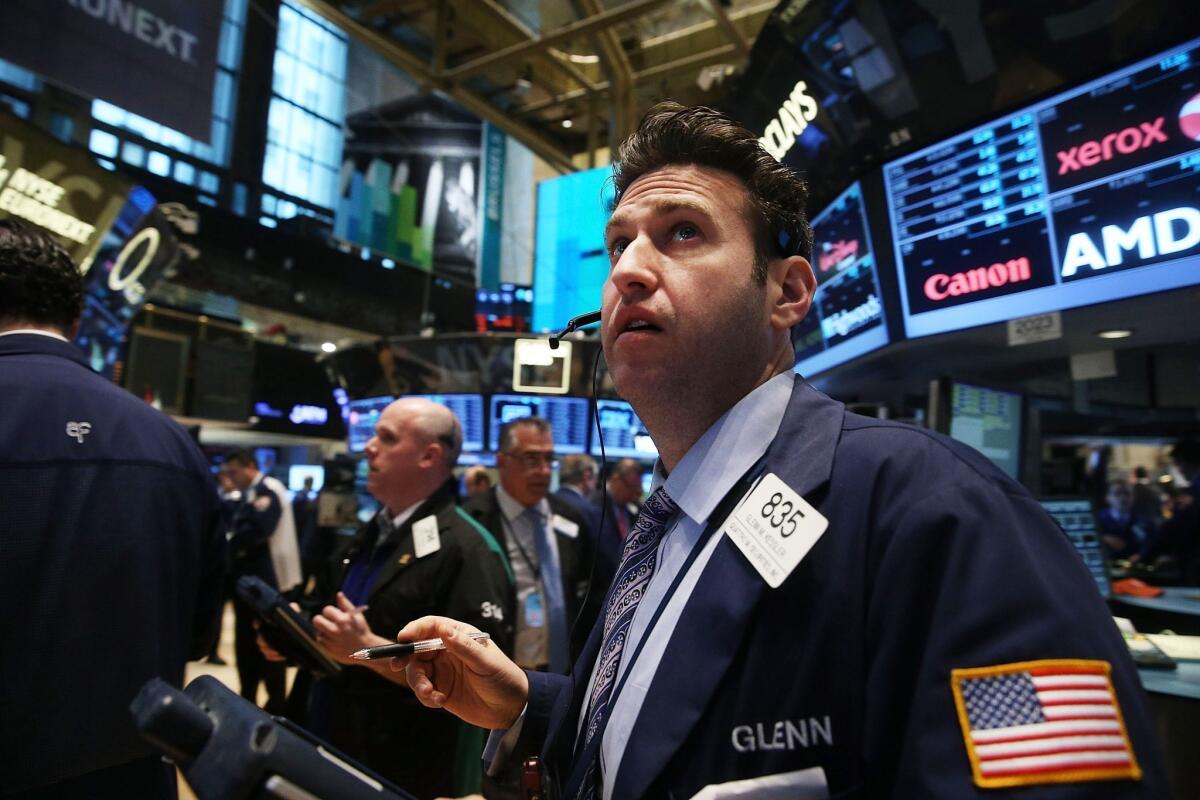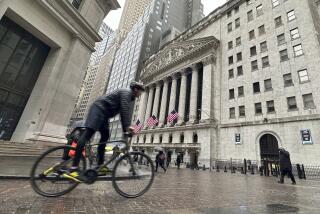Do stress hormones fuel volatility in financial markets?

Do hormones drive volatility in world financial markets? According to new research, chronically high levels of the stress hormone, cortisol, can alter the behavior of beleaguered financial traders, boosting their risk aversion and inspiring “irrational pessimism.”
In a paper published Monday in journal PNAS, researchers found that London financial traders experienced a 68% increase in cortisol levels during periods of market volatility.
When researchers reproduced similar levels of chemicals in human subjects in the lab, they observed a “large” change in the study participants’s willingness to take on risk.
“Any trader knows that their body is taken on a roller coaster ride by the markets,” said study co-author John Coates, a former Wall Street derivatives trader who researches neuroscience and finance at the University of Cambridge. “What we haven’t known until this study was that these physiological changes -- the sub-clinical levels of stress of which we are only dimly aware -- are actually altering our ability to take risk.”
“It is frightening to realize that no one in the financial world -- not the traders, not the risk managers, not the central bankers -- knows that these subterranean shifts in risk appetite are taking place,” Coates wrote in a prepared statement on the research.
Risk and the willingness of humans to accept it are key focuses of economics and finance.
While games and experiments designed to measure risk aversion often assume that people’s decision-making is consistent, Coates and his colleagues say this is not the case. Physiological factors play a role as well.
Cortisol is secreted by the adrenal glands during times of stress. While the hormone can increase physical arousal, aid memory and help in learning, chronic, long-term exposure can impair the immune system, reduce mental attention and produce anxiety and depression among other effects.
Researchers began their study by testing levels of cortisol in London traders who were responding to erratic markets over a period of eight days. The traders revealed a 68% increase over their mean daily cortisol levels, researchers said. (By way of comparison, physical trauma or surgery can increase cortisol levels up to 500%.)
In order to examine how elevated hormone levels might impact decision-making, researchers enlisted the help of 36 volunteers -- 20 men and 16 women between the ages of 20 and 36.
Some of the group were given hydrocortisone pills -- the pharmaceutical form of cortisol -- while others were given placebos for a period of eight days.
During this time, the study subjects also played computerized lottery-style games in which they could win real cash.
Researchers found that while an initial increase in cortisol appeared not to effect decision-making, chronic and sustained cortisol levels resulted in a noticeable drop in their willingness to accept risky propositions.
High cortisol subjects exhibited a large reduction in their “risk premium” -- the amount of additional risk someone will tolerate for the prospect of winning more money. Researchers said the premium dropped by 44% for those who had elevated cortisol levels.
Interestingly, while some studies have concluded that women are more risk averse than men, Coates and his colleagues did not find this to be the case in their study.
Study authors said that based on their findings, the role of cortisol in world financial markets could be wide-reaching.
They speculated that hormones may have exacerbated the credit crisis of 2007 to 2009, when volatility in U.S. equities reached historically high levels.
Chronic stress, authors wrote, may have decreased risk-taking “just when the economy needed it most: when markets are crashing and need traders and investors to buy distressed assets.”
“Physiology-induced shifts in risk preferences may thus be a cause of market instability that has been hitherto overlooked by economists, risk managers, and central bankers,” authors concluded.







